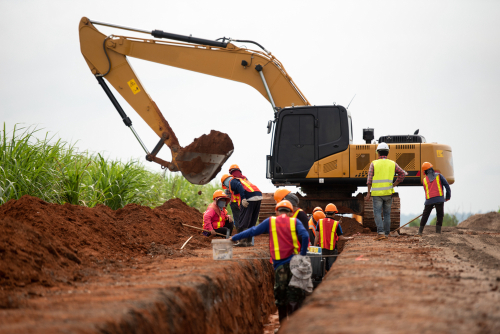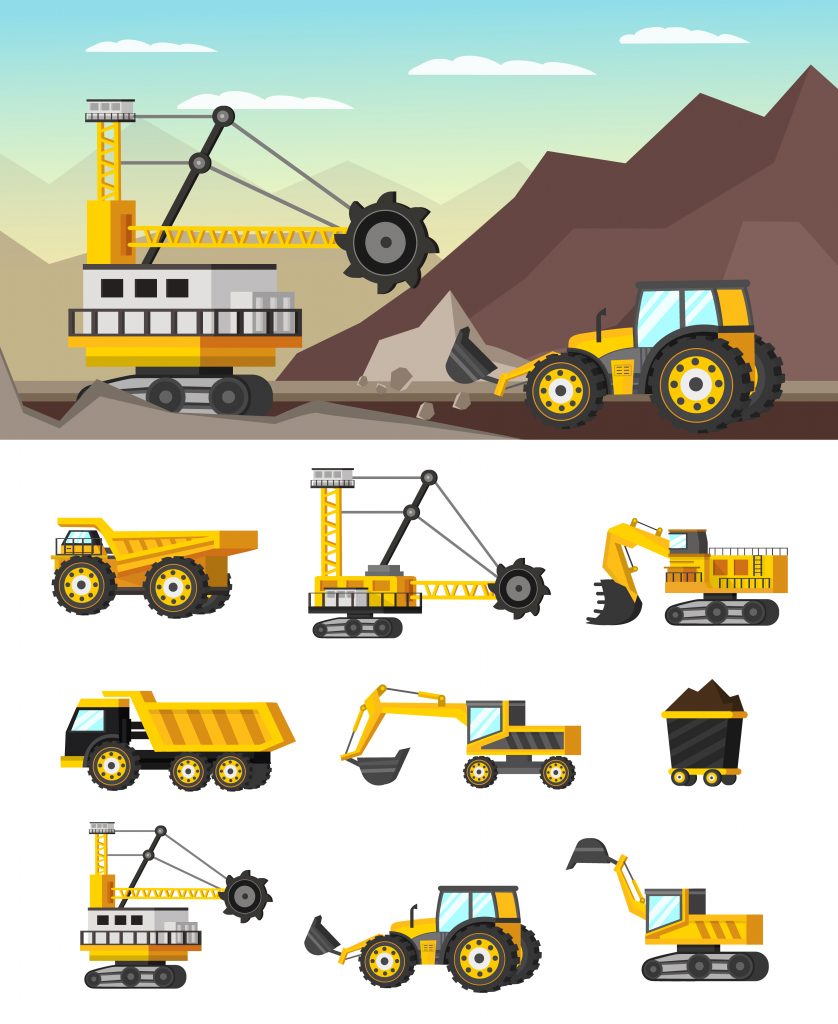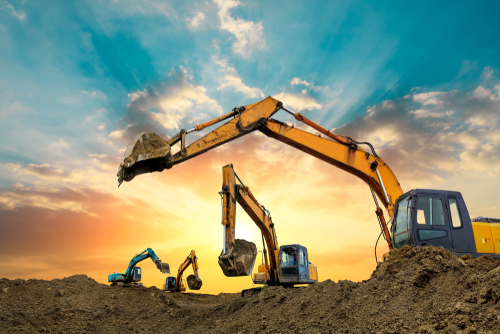What to Look for in Local Excavating Contractors
Whether you need to start a new commercial building project or it’s time for a landscaping upgrade in your home, there are several benefits to hiring local excavating contractors.
These highly trained contractors are the specialists you want if you want to ensure a smooth project. It doesn’t matter if it’s a small residential work or a large-scale commercial development – kickstarting the project with the right site preparation measures can guarantee that it will be a success.
In today’s post, we’ll go over what to the essential details you can look for when looking for local excavating contractors. We hope the information you find today will help you make the right choice.
What to Do Local Excavating Contractors Do?
These construction professionals are experienced to work on hardscaping and landscaping, foundation building and repair, drainage and sewer services, and other excavation services.
These services include digging up a hole, transporting heavy materials such as rocks, dirt, soil, trees, and other vegetation.
Experience Is Vital
However, it is not the only factor you should consider when looking to employ an excavating company’s services.

Still, if you want to know more about it, we’ll let you in on some important industry information.
Local excavating contractors with a minimum of five years on the job almost always guarantees good excavating performance.
However, that’s not always the case. Certain other factors affect excavating professionals’ work – not just how long they’ve been in the industry.
Some excavating contractors who have been in business for ten years or so may have only completed a handful of excavating projects. Other companies have numerous completed projects under their belt. However, these projects are subpar or on the smallest scale.
Thus, don’t pass up on newly established local excavating companies. This is especially true if these newer contractors have top-of-the-line equipment and heavy-duty machinery. After all, everyone has got to start somewhere.
Check for the Right Machinery and Equipment
Speaking of top-of-the-line equipment, any excavating specialist worth their salt will not compromise on the quality of machinery they use.
When it comes to hiring excavating professionals, having worn-out and outdated machinery is an automatic red flag for any sensible person.
The condition and type of excavating equipment and machinery can make or break the overall project. If your contractor has worn-out machinery, the efficiency, and quality of the project is on the line.

Your excavation project’s needs, size, and scope will dictate the specialized excavating equipment needed to do the job.
Also, different types of excavators will have their own shortcomings and capabilities. Thus, it’s essential to understand what these are before you hire a contractor.
Furthermore, you have to ensure that the operator knows how to properly use the machinery and equipment with minimal disruption and damage to the environment.
Here are the different types of excavators and their various applications.
Crawler Excavators
This type of excavating equipment runs on two massive boundless tracks called the standard or compact excavator. They are used in heavy-duty construction jobs, trench digging, landscape grading, and mining projects.
Crawler excavators utilize hydraulic mechanisms to haul up soil and other heavy debris. The chain wheel allows crawler excavators to have a good steadiness when operated. Their stability makes them ideal to use on uneven terrain and muddy, rough, or steep grounds.
Wheeled Excavators
This type of machinery is similar to the crawler (compact, standard) excavator. However, unlike the crawler, and as the name suggests, this one runs on wheels and not tracks.
The wheels help lessen any traction, making this type of excavation equipment practical to use on concrete or asphalt. It’s also easier to operate and works fast and effortless on hard and flat ground.
On the other hand, it’s not the best choice for hilly or muddy terrain. Also, if you have soft soil, slopes, or hills on your building site, it’s best to choose a different excavator for the job.
Suction Excavators
This type of excavator is also called vacuum excavators. They have a suction pipe that can let air out up to 400 horsepower. They run by first releasing a strong water jet to help loosen and slacken the ground surface.
The pipe component features sharp prongs at the edge. These prongs generate a vacuum that removes the soil and earth up to 200 miles per hour.
Suction excavators can lessen damage to the area and underground utilities for more than 50 percent. Thus, this type of machinery is ideal for delicate underground excavating, debris clean up, and other tenuous digging jobs.
Dragline Excavators
This is a larger piece of machinery that functions with a different system. Due to the weight and scale of this equipment, they are often put together on site. It has a digging depth of a minimum of 215 feet or more.
The dragline excavator has a hoist rope structure that affixes to the bucket and through a hoist coupler. The opposite side of the bucket attaches to a dragline. The dragline then runs from the bucket to the machine.
The hoist rope system lifts the bucket up and puts it down. While this is being done, the dragline drags the bucket closer to the operator.
Dragline excavators are ideal for big-scale engineering and construction projects such as canal digging, underwater excavating, harbor construction, surface mining, and other deep excavation applications.
Long Reach Excavators
As the name suggests, long reach excavators are ideal for the hard-to-reach areas in your construction site.

This machinery features a long arm and a boom that makes it easier and more efficient to dig from a safe distance.
Along with the attachments, the extendable arm has a reach of between 40 feet and 100 feet.
It’s an ideal machinery for terrain or other building sites that are challenging for the operator to get too close, such as over water digging or industrial demolition projects.
If you have a large-scale construction project with zones of over 100 feet horizontally, this is the type of excavator you want to use.
Skid Steer Excavators
Skid steer excavators are used for hauling away piled up or spread out debris, soil, rocks, and other materials. Unlike crawler excavators, skid steers feature buckets and booms facing away from the operator.
This setup allows the other machine attachments to get over the main cab instead of around it. They are best used in narrower areas, sites with limited space, or if you have to maneuver complicated turns.
If you have a smaller excavation project such as residential work, a skid steer excavator is an ideal equipment to use.
Other Attachments and Parts
You can remove, add, and switch specific attachments and parts of excavating machines to alter their application.
Your local excavating contractors know what best configuration will work best for the needs of your construction project.
Bucket
This is the most common attachment. They are made of steel with teeth-like rims making them ideal for scooping dirt and digging holes in the ground.
Auger
This is an attachment powered by hydraulic systems to drill into the ground. They come in different sizes, depending on the depth and extent of the hole you want to dig.
Breaker
Think of a giant jackhammer attached to an excavator, and you get a breaker. They are used for hammering through concrete, stone, and rocks.
Thumb
Thumbs are the larger version of buckets. They can do everything buckets can but on a larger scale.
Couplers
This is a supplementary excavation attachment that makes it easy for operators to switch out attachments.
Hire Local Excavating Contractors Capable of Managing the Scope of Your Project
Make sure you are hiring a contractor that can properly manage and oversee your project.

For instance, a smaller excavation company may not have the resources needed to handle a massive project.
They may be inclined to accept your large-scale project, but if they don’t have the workforce or resources ready to do the project, then it would be a significant inconvenience to you, to put it lightly.
Some contractors don’t always offer full-scale projects – whether it’s for residential or commercial construction. Some contractors can do sewage, piping, and drainage systems, but they don’t have the experience and capacity to do residential work.
Thus, it’s vital to keep things like that in mind before hiring an excavating professional for your project.
Proper Qualifications, Licensing, and Certifications
One of the essential things you need to look for in any contractor type is their certifications, licenses, and qualifications to complete the job.
These items guarantee the completion of the job. More importantly, it assures you that you won’t be liable for any errors, problems, or damages if any accidents occur during the project.
It’s also mandatory for many states in the country to have some licensing or certifications to do business. Thus, check the requirements of your jurisdiction for doing construction work.
Key Takeaway When Looking for Local Excavating Contractors
Choosing the right local excavating contractors for your project can be overwhelming. However, it shouldn’t be hard at all. Make sure you keep these essential tips in mind. Good luck in your search!